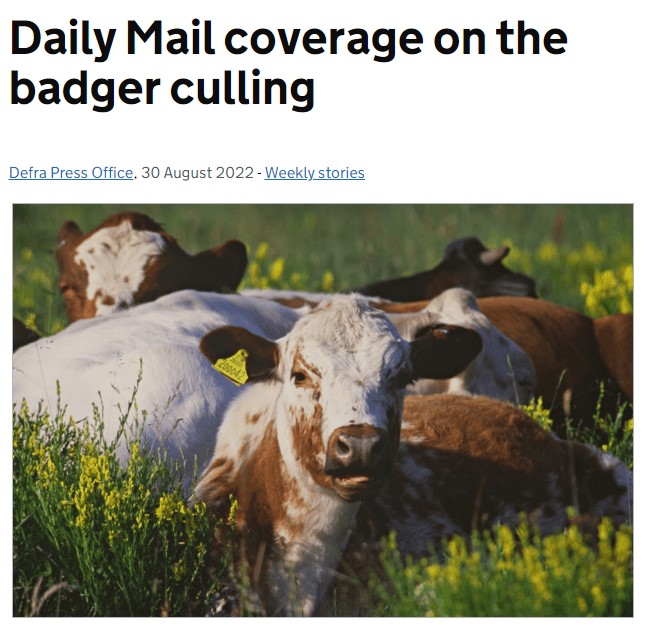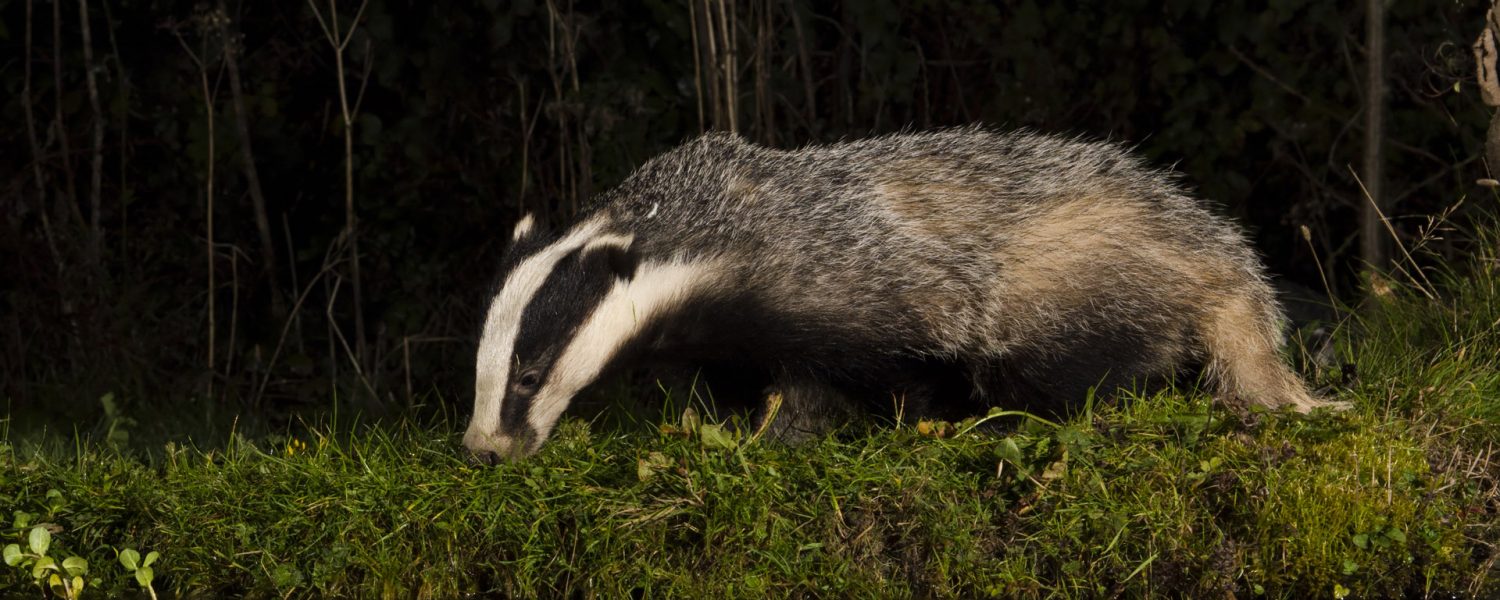
Has Defra had enough of experts? Its own experts that is?
Last week The Daily Mail published a story (here) around the release of a Freedom of Information request (here). This FOI showed that the Deputy Director of the bovine TB Programme at Defra wrote to the journal Veterinary Record (VR) trying to influence the peer-review process of a new scientific analysis of badger cull data, Langton, Jones and McGill, (here), and largely failed.
The Mail story was published on Tuesday 30th August and names Eleanor Brown as the senior official who wrote to VR Editor Susanne Jarvis on 2nd March 2022, just a few weeks before the paper appeared in print. It laid down extensive criticisms aimed at the manuscript that they had been sent ahead of publication, where they stated that it was the VR Editorial Board’s (Headed by Lord Trees) decision as to whether to publish it or not. Defra thought it should not be published and made that very clear to a journal that extensively publishes government science.
The original Mail article implied that VR had been ‘forced’ to seek changes to the manuscript. The VR Editorial Board had in fact called a special meeting to discuss challenges to the paper, that Defra’s email in early March claimed was full of errors and flaws. However, the VR Editorial Board found that there was nothing wrong with the statistical work, which was found to be robust. These senior national and international veterinarians, with the VR staff, resting on the detailed reviews of no less than four peer reviewers decided that Defra’s accusations held little substance, and published the paper largely unaltered. The paper showed badger culling lacked any signs of working. Badger culling has not affected bTB herd breakdown in the High Risk Area of England since 2013.
The Daily Mail then republished the article the next day (31st August), removing the claim that Defra had ‘forced’ the Veterinary Record to make changes to the paper. The truth was that in order to proceed with publication, VR had required the authors to write-in Defra’s apparent intention to publish something in the future, using data it had kept secret, and describe it as a limitation to the study. Something that was dubious, but was made a condition of the paper not being blocked. So the Mail got it right in that there was an element of ‘watering down’ due to the Editorial Board meeting, but nothing that impacted the full force of the paper’s findings that showed that Defra’s badger culling policy had been a total failure.
Defra’s view that the analysis was flawed was therefore roundly rejected by over a dozen leading experts in the field. However, Defra had been invited to comment on the new paper for a short news piece to accompany the publication of Langton et al in the same edition of the journal. But this ‘comment’ somehow morphed into a full-page critique, fronted by the Chief Scientific Adviser Gideon Henderson and Chief Veterinary Officer Christine Middlemiss. This contained and expanded on the sentiments of Eleanor Brown’s email. It persisted with the claims that the paper was ‘flawed’. This was published under the guise of a ‘letter’ in the very same issue.
These highly unusual events then became farcical when commentators immediately recognised errors in Defra’s alternative view. But Defra then held out for six weeks before admitting that their letter was flawed. They then revised it. Saying it didn’t matter anyway because they were right and in effect, that the study, Vet Record editorial staff and the peer reviewers were all wrong (here). In response to last weeks Mail story, Defra even put out a defiant blog on 30 August repeating their original nonsense and unchecked views using small amounts of data for the unculled area comparison (here).
 The 30 Aug Defra blog stated:
The 30 Aug Defra blog stated:
“As we had been invited to, we presented our findings to Vet Record to help inform its editorial decisions around publication of the paper, with the journal deciding to publish the study alongside a letter of response from the Chief Vet and Defra Chief Scientific Adviser. There was absolutely no attempt to make changes to the scientific research, as the Mail claims was the case.”
For some reason any comments made to this blog criticising Defra’s restatement of their flawed position were removed. Interesting.
So Defra now say that it never attempted to try to get changes made to the science. Yet it wanted to go over the head of the VR staff and peer-reviewers to the Editorial Board? And turned an invite for a news piece comment into a mini-paper that was wrong, dressed up as a letter.
Readers can be the judge of whether science was handled ethically in this instance. Defra say they made no attempt to make changes, yet they wrote to VR in very clear and emotive terms a few weeks before publication, and having been ignored, completed a hurried un-peer-reviewed missive that itself was full of error, ambiguity and secrecy. They were successful in getting the VR Editorial Board to require a smattering of changes stating that Defra had other ideas. Un peer-reviewed science of the future influencing peer-reviewed science of the present?
This actually all looks more than a bit dubious from the perspective of publishing ethics. It has to be asked, who is going to look into it? Having re-stated their views on their new blog, Defra have begun signing off new four-year intensive badger cull licences in 10 new cull areas this autumn, with 40,000 or so more badgers condemned. But Defra are wrong. They (wrongly) claim large benefits from badger culling in the first two years of culling, as they did in 2017, yet say this data cannot be used in the Langton et al analysis. And then they won’t talk about it and neither will Natural England’s statistical expert Peter Brotherton. Natural England as a whole have clammed up, presumably because Defra won’t explain their thinking to them either.
The Minister George Eustice owns the badger cull policy and is closely managing it. He must now be aware of what his staff have done. He may even be a part of it. They have painted themselves into a corner and gone to ground. Has he had enough of his experts yet? If he survives the reshuffle that is. If not, perhaps the dodgy legacy will be his, and a new Minister will get to grips with the ridiculous, unscientific yet defiant behaviour of Defra and its agencies on bovine TB and badger culling. As hundreds of badgers a day are shot for no good reason, the evidence clearly points to bad government and desperate measures. This policy of killing largely healthy, protected animals in a manner found cruel by the British Veterinary Association is out of control.

